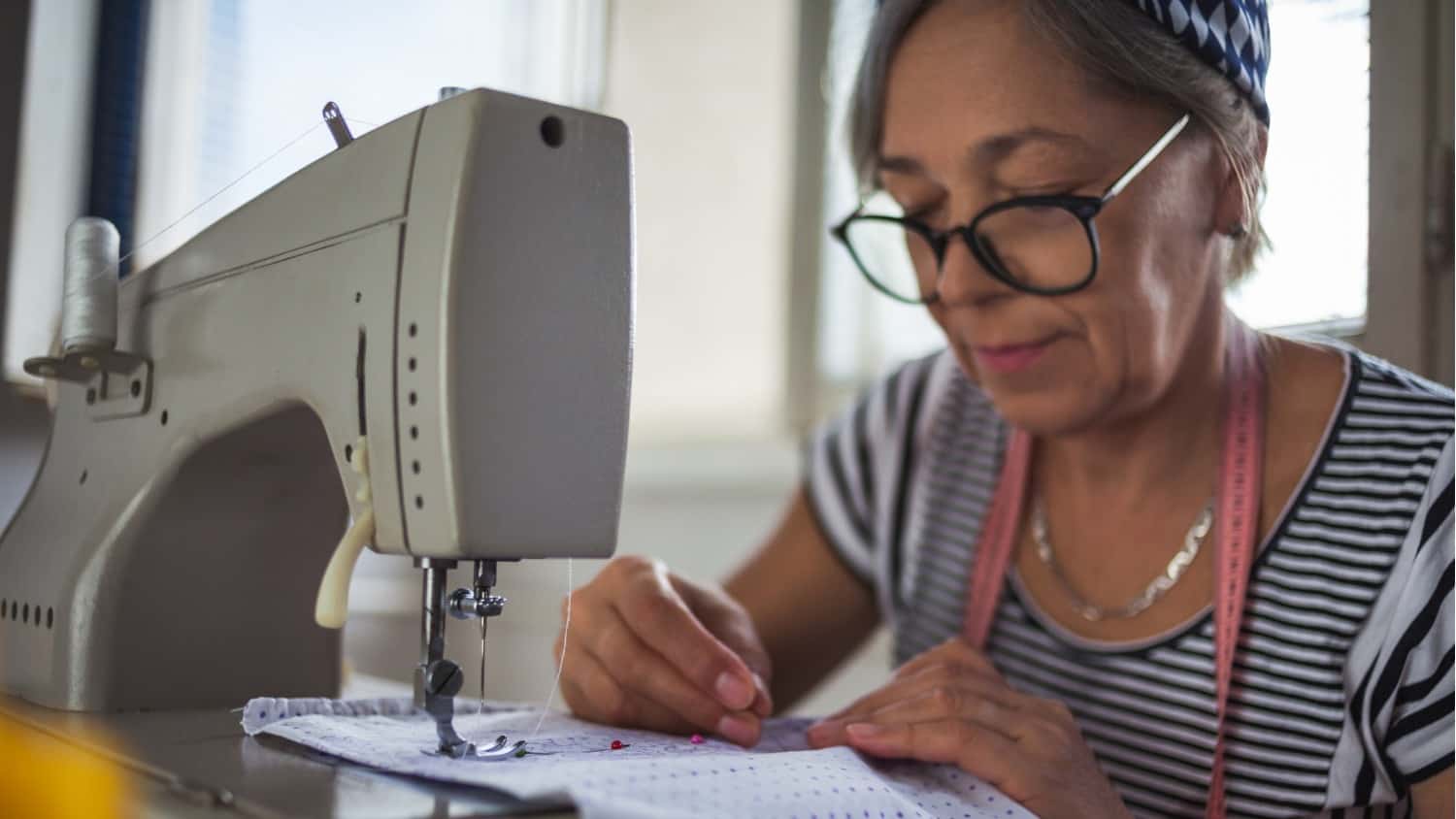
Have you ever sewn yourself a garment? I’m sure that you at least know the basics of sewing. It was only in recent years that sewing (“home economics”) was no longer taught in public school. Sadly, this seems like a dead art, but one that is slowly being resurrected.
Thanks to the explosion of the Internet, and sites like YouTube, many are relearning this trade. Some set out to simply hem their own pants. Others truly want to learn every single meticulous trick in the book.
Let me share briefly my personal experience… and give you some tips if you want to learn how to sew or revisit this as a new hobby.
A Passion Rekindled
I was about 16 years old and my mother purchased a used sewing machine for me. I had learned the basics in junior high, although my attempt at making a pillow the first time was awful. My mother barely knew how to sew on a button, so she hired a retired tailor to teach me the basics.
He came to my home and taught me for a short time until I was comfortable with my machine. I later went to study fashion design and took clothing construction courses. However, I was still not good at all.
I think there are some people who are naturals at sewing, but mostly it just takes a lot and LOT of practice to get it mastered.
Years passed and I did not sew often as I was a young, busy mother for most of my 20s and early 30s. When I was 31, I was suddenly diagnosed with cancer (lymphoma). My kids were 9 and 2 at the time.
After finishing the treatment, I really did some soul searching and decided I wanted to go back to my passions. So I started offering custom children’s clothing online and locally – a lot of fun.
I was also using my vintage sewing patterns that had been given to me years ago and experimenting with different eras of sewing. Shortly after though, the cancer came back, and I was forced to take it easy while I was getting much harsher treatment.
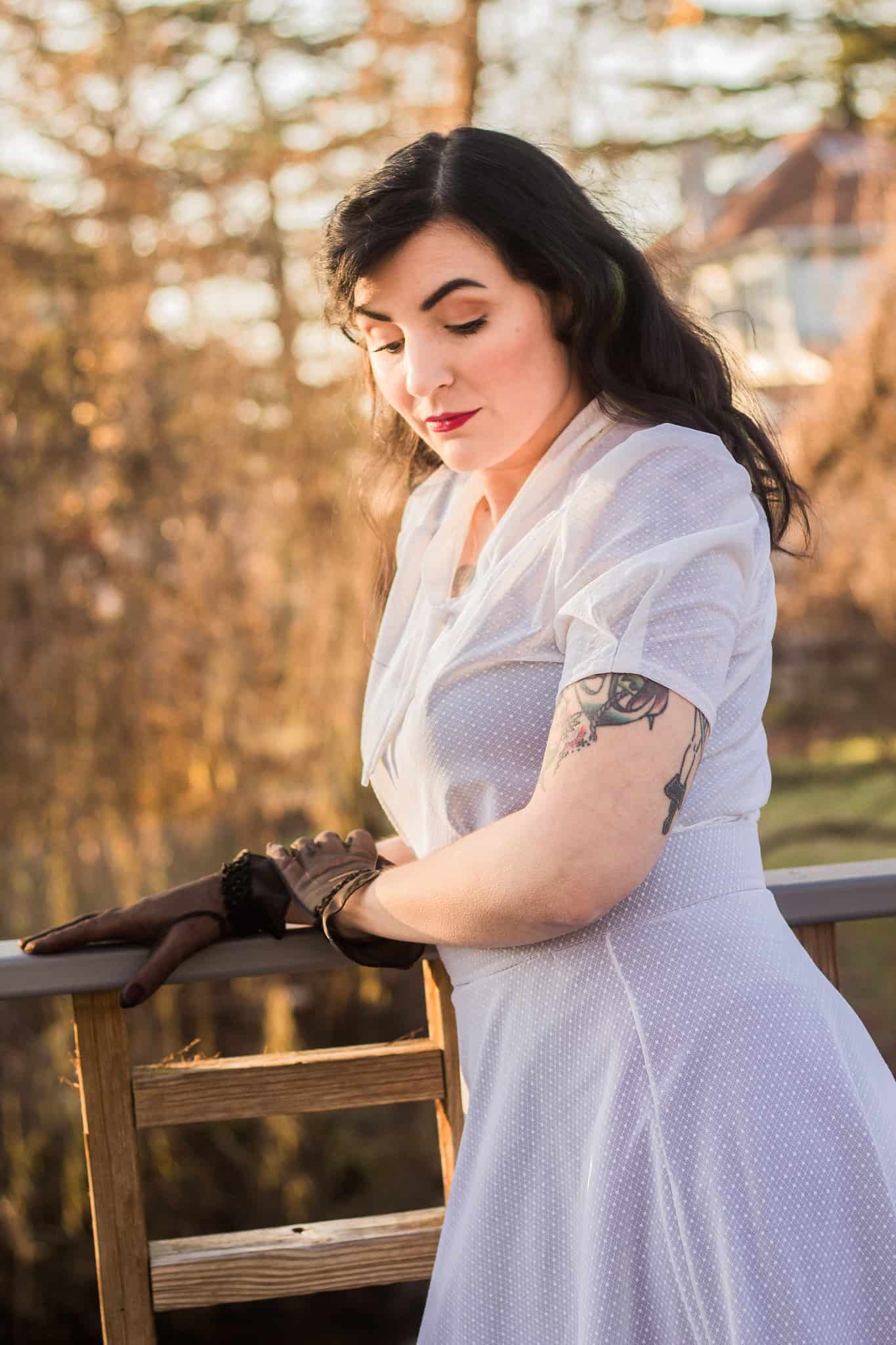
I would always return to sewing for an escape. It really helped me get through some of the darkest times of my cancer battle and the PTSD that followed.
In 2019, I decided to take a break from sewing for others. I was beginning to get burnt out from sewing for money and missed the joy of creating my own pieces!
I broke out the boxes of beautiful vintage patterns, and before long I had made myself a closet full of gorgeous, well-fitted garments tailored to my own liking and fit.
In fact, I haven’t stopped sewing pieces for myself since. I do sew for others again, but not without a treat to myself!
How to Start Sewing or Pick It Back Up
If you want to start or restart sewing, you’ll need a few things:
- A sewing machine (used or new, but no need to splurge)
Brother CS5055 Computerized Sewing Machine from Amazon
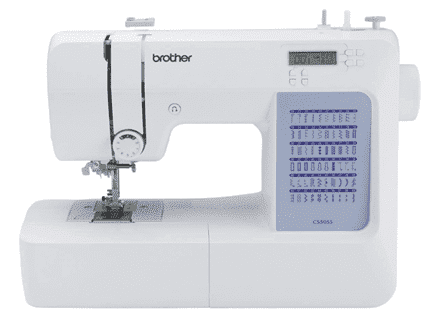
- Sewing kit that includes pin cushion, tape measure, straight pins, and seam ripper
VelloStar Sewing KIT from Amazon
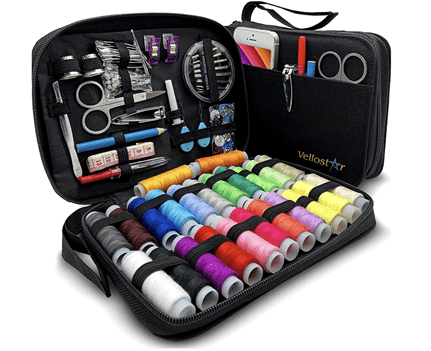
- Decent quality fabric shears
Fabric Scissors from Amazon
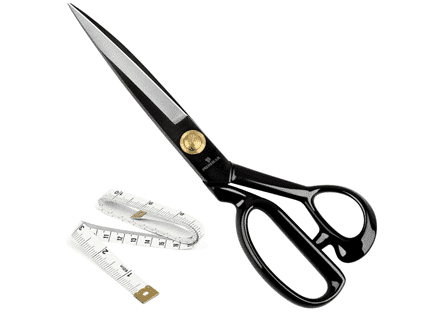
- A comfortable place to sew with good lighting (does not need to be a sewing desk)
St. Nicholas 38.5” x 19.5” Foldable Engineered Wood Sewing Table from Wayfair
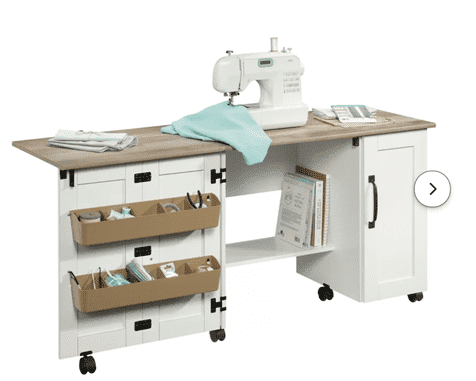
- Thread scissors
Fiskars Thread Snip Scissors from Amazon
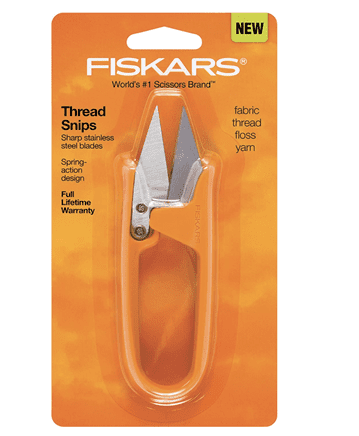
- A place to cut fabrics. You can get a cutting board with grids and place it on any table in your home. The kitchen table is usually a good place to cut fabrics.
WORKLION 24″ x 36″ Cutting Mat from Amazon
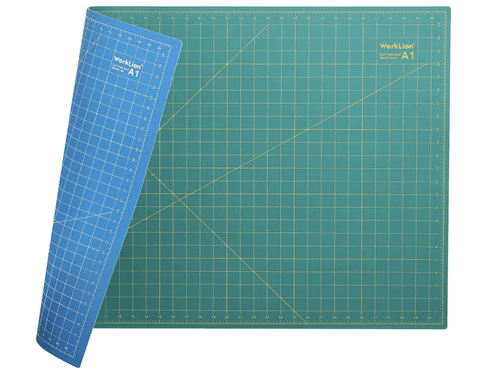
- Iron and iron board. These little ironing matts are great space savers and are perfect for sewing projects.
Above Edge Magnetic Ironing Mat from Amazon
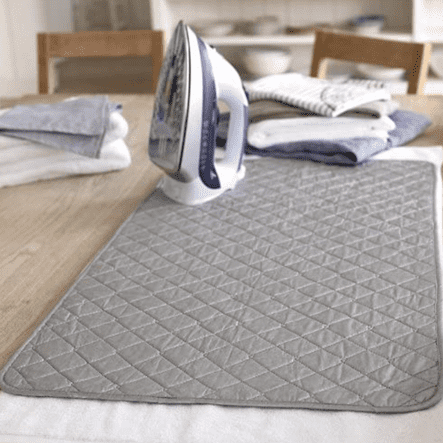
- Colored pencil or tailor’s pen/chalk
Madam Sew Chalk Fabric Marker from Amazon
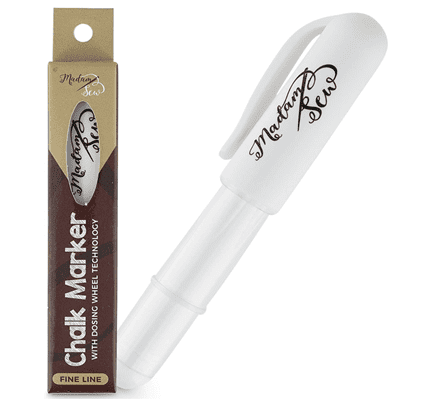
- clear grid marked ruler
6 Pieces Beveled Transparent Sewing Rulers from Amazon
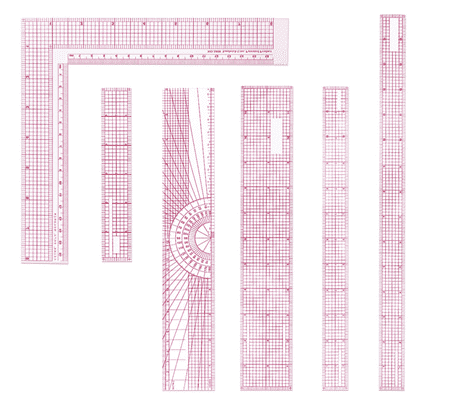
Optional but helpful items:
- Serger
Brother Serger from Amazon
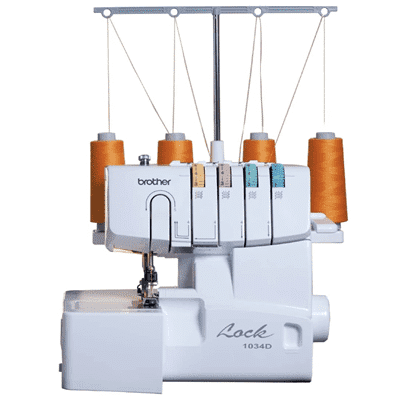
- Organizational cubes to store patterns or fabric
Plastic Cube Storage Bins from Home Depot
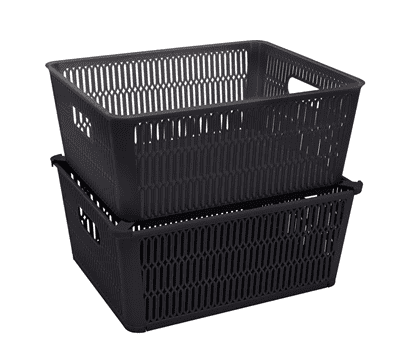
Now that you have your supplies, you will need a teacher. You can go on YouTube and look up various sewing tutorials. You could also get a book and teach yourself. I would advise doing what you are most comfortable with.
Here are a few suggestions for YouTube channels that are all about sewing.



The Sewing Book: Over 300 Step-by-Step Techniques from Amazon
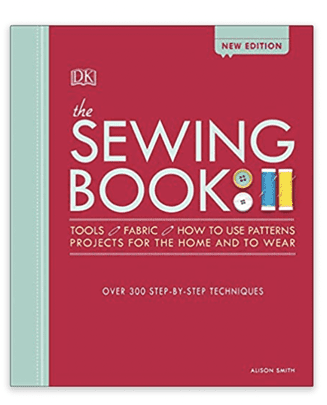
First Time Sewing: The Absolute Beginner’s Guide from Amazon
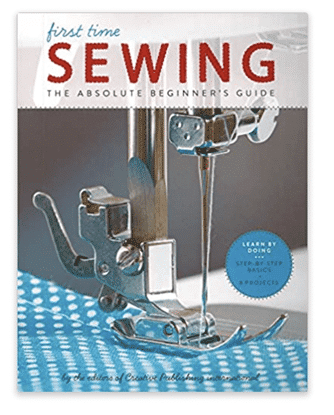
If possible, you could hire a sewing instructor or go to a local sewing center to inquire about classes. If you remember the basics, you could start with a pattern purchased from your local dealer.
Simple Beginner’s Projects
Do not overwhelm yourself by picking a difficult first project! I would advise a simple skirt (such as an A-Line or circle), an apron, or a home decor item like a pillow or decorative towel.
Once you achieve success with a few easy projects, add in some intermediate level ones. If you follow the steps and are patient, you will be pleased with your work!
Tips to Remember When Starting Out
I will leave you with a few necessary steps in sewing ANY piece.
Always:
- backstitch at beginning and end of stitch (this secures the seam)
- press (iron) neatly your seams as you go!
- finish your seams step by step (serging, or zigzagging, or other techniques) for beautiful garments inside
- sew darts first
- for fabrics that may stretch, stay stitch the neckline and waist areas by simply sewing a seam near the edges
- follow the seam allowance on patterns. It is almost always a half-inch or five-eights of an inch. You can also mark the seam by using a clear ruler with a grid and a colored pencil or tailor’s pen.
Never:
- NEVER, EVER use your fabric shears for paper!
- Do not use cheap or cotton thread for sewing apparel. I advise only 100% Polyester thread.
- When first starting out, do not attempt stretchy knit fabrics such as jersey or 2-way stretch fabrics.
- Use woven cotton, such as quilting cotton for the first few projects. You can get these on sale at Jo-ann year wide, or even find them at garage sales super cheap!
I Hope That You Are Inspired to Sew!
If you decide this journey is for you, have a lot of fun and enjoy the process.
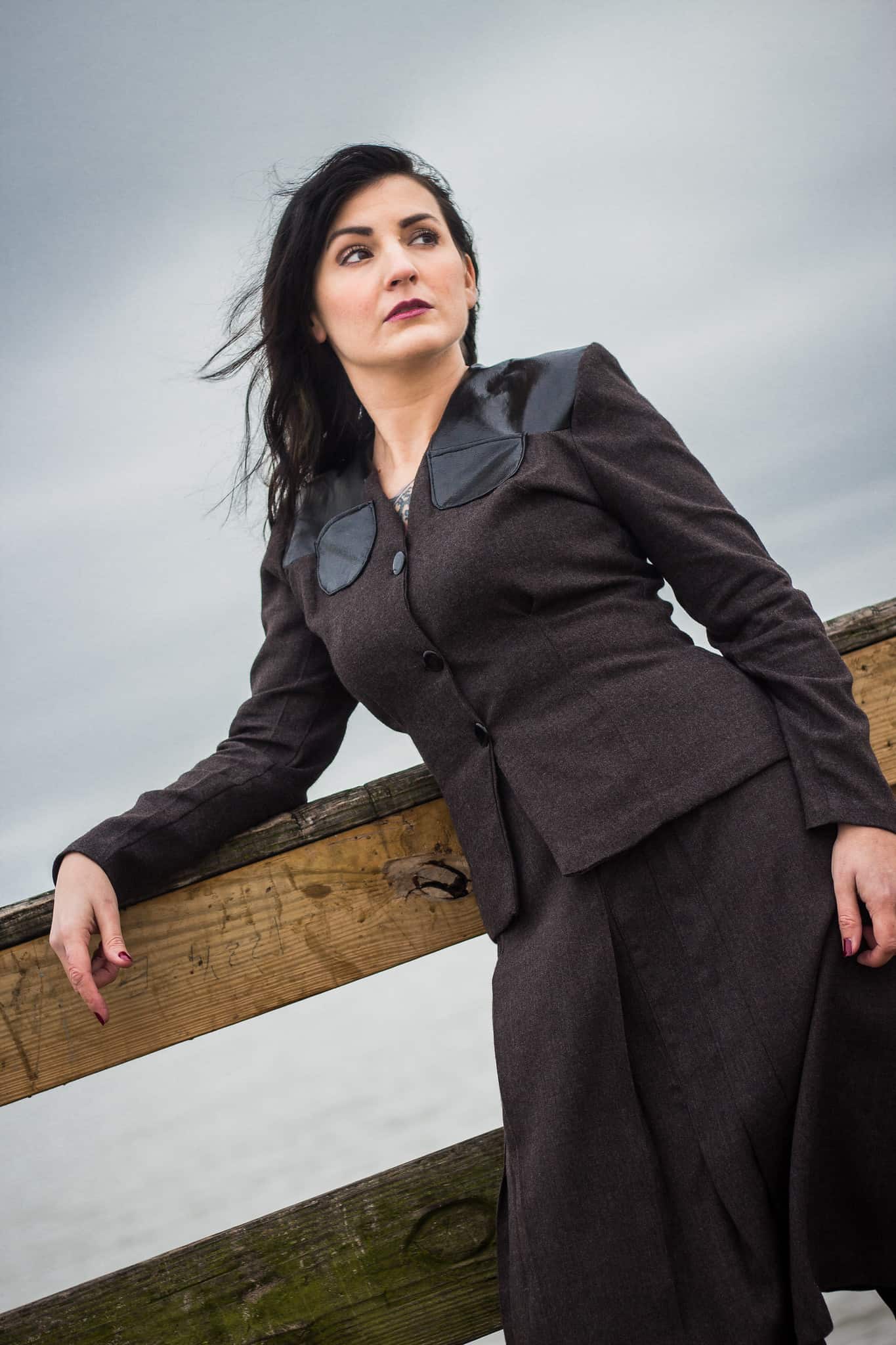
My final word of advice is, BE PATIENT. Please take your time and the results will speak for themselves.
What sewing projects have you done in the past? Are you working on one right now? Do you have any sewing questions? Is there a certain pattern or project that you have always wanted to make but haven’t?